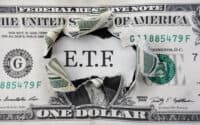 The ECB will continue to buy the bonds of financially troubled EU nations, but it won’t say for how long. This forces capital markets investors to see the rescue of the region’s weakest nations as tentative and uncertain. Therefore, interest rates in the sovereign nations will remain high because risk cannot be calculated with even modest certainty.
The ECB will continue to buy the bonds of financially troubled EU nations, but it won’t say for how long. This forces capital markets investors to see the rescue of the region’s weakest nations as tentative and uncertain. Therefore, interest rates in the sovereign nations will remain high because risk cannot be calculated with even modest certainty.
Reuters reports, “The European Central Bank has not decided how long its unconventional interventions in the secondary market for European government debt will go on, Executive Board Member Jose Manuel Gonzalez-Paramo said.”
Over the weekend, some senior EU officials said that the size of the 440 billion euro EFSF would need to be increased to show investors that the capital is available if contagion moves the debt crisis beyond Greece. But, no specifics about timing or amount were discussed.
Within the last few days, German officials said the the country would like to see the European Stability Mechanism permanently established in mid-2012, an acceleration from the former target of mid-2013. This should be significant because Germany will contribute the lion’s share of the funds. But German officials gave no details about how the fund might be in place early.
The cost to insure the debt in Greece, Portugal and Spain will rise on Monday. The rates they must pay for money to go to their treasuries will also rise. There are too many plans to save the EU from its financial crisis, and too few details about how any of them might work.
Douglas A. McIntyre
Want to Retire Early? Start Here (Sponsor)
Want retirement to come a few years earlier than you’d planned? Or are you ready to retire now, but want an extra set of eyes on your finances?
Now you can speak with up to 3 financial experts in your area for FREE. By simply clicking here you can begin to match with financial professionals who can help you build your plan to retire early. And the best part? The first conversation with them is free.
Click here to match with up to 3 financial pros who would be excited to help you make financial decisions.
Thank you for reading! Have some feedback for us?
Contact the 24/7 Wall St. editorial team.



